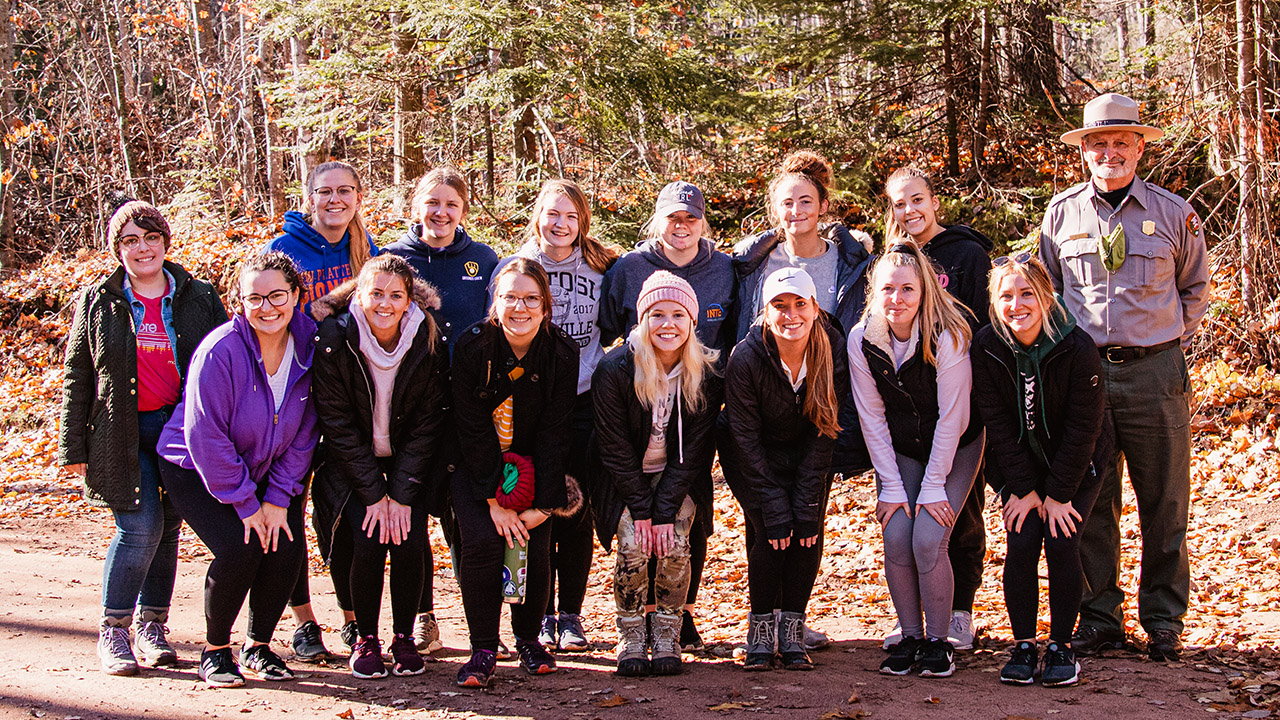
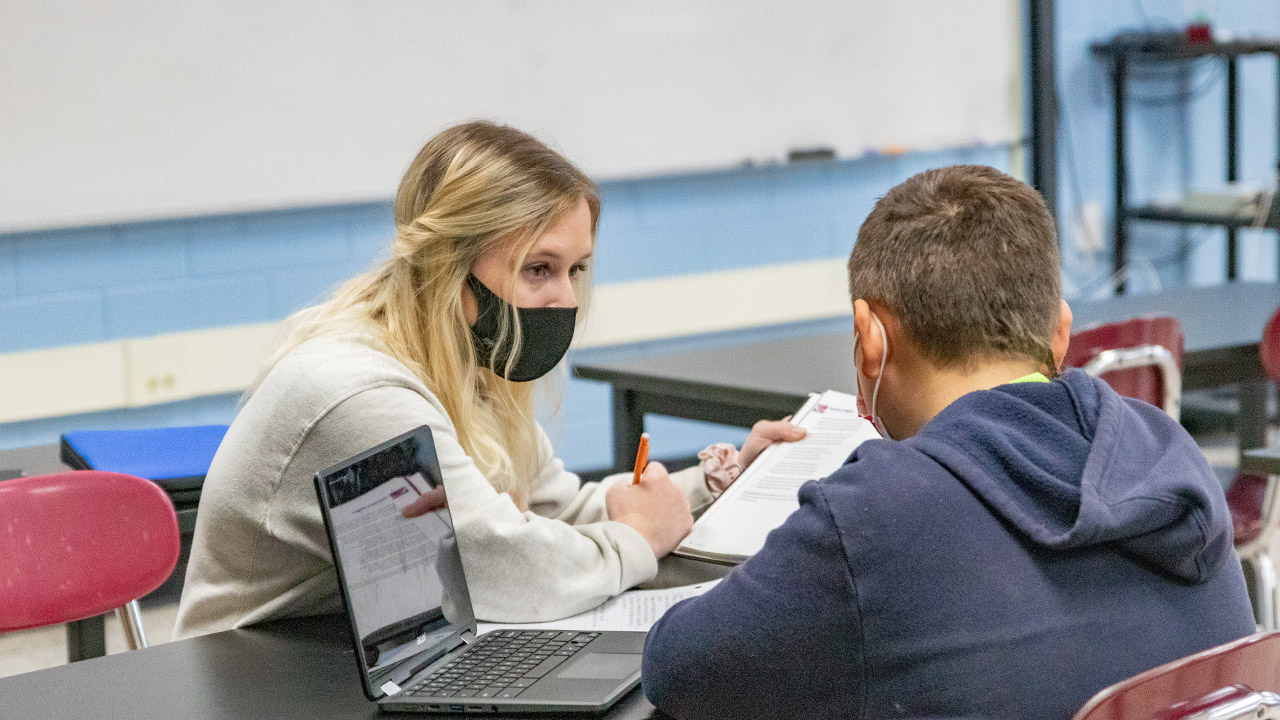
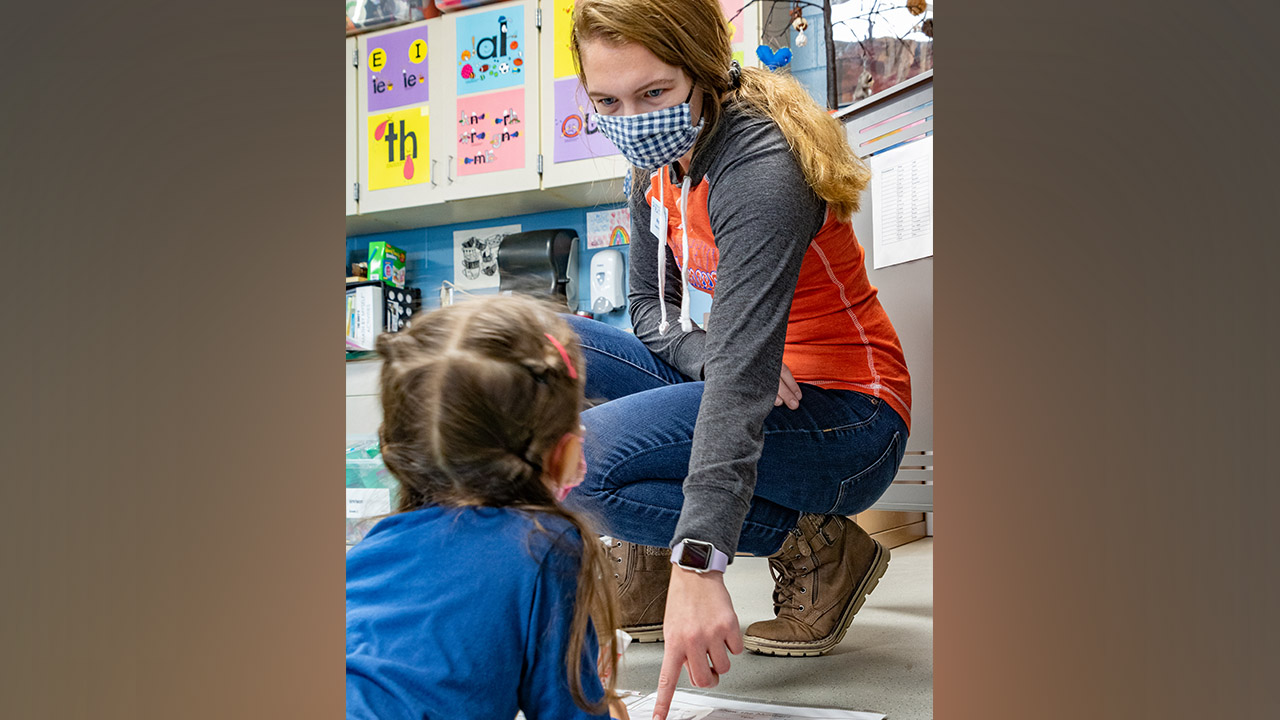
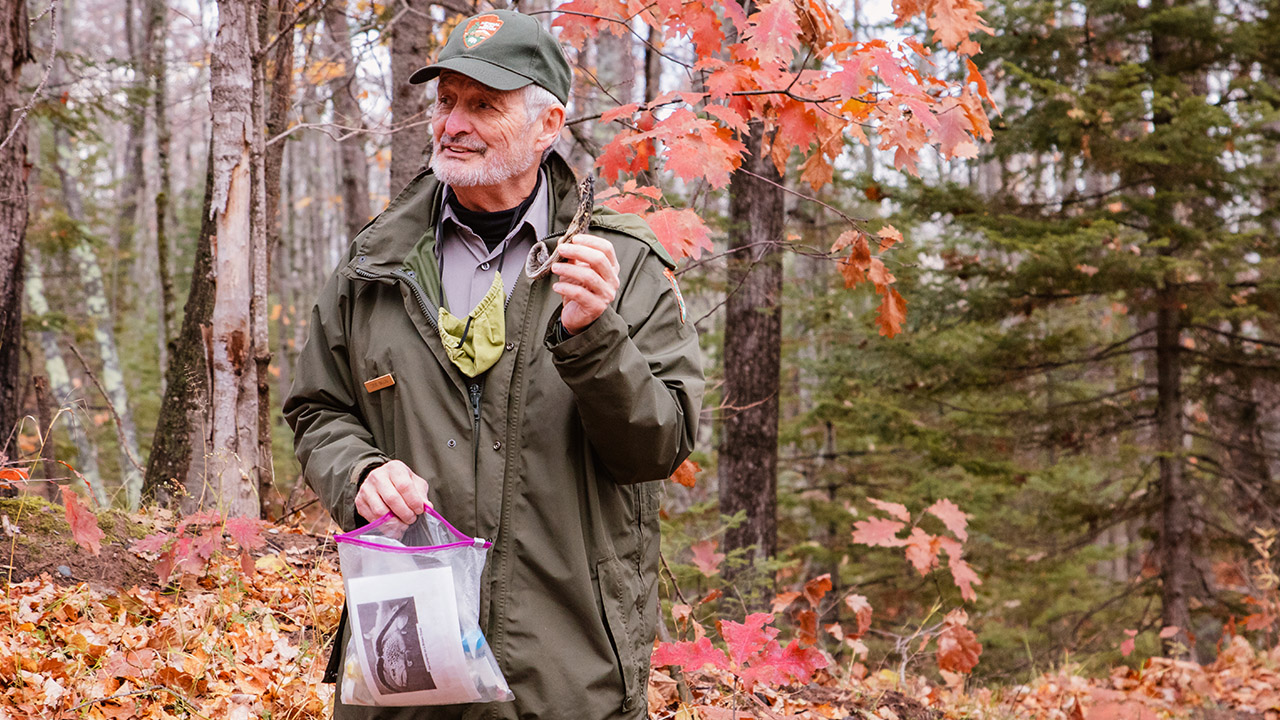

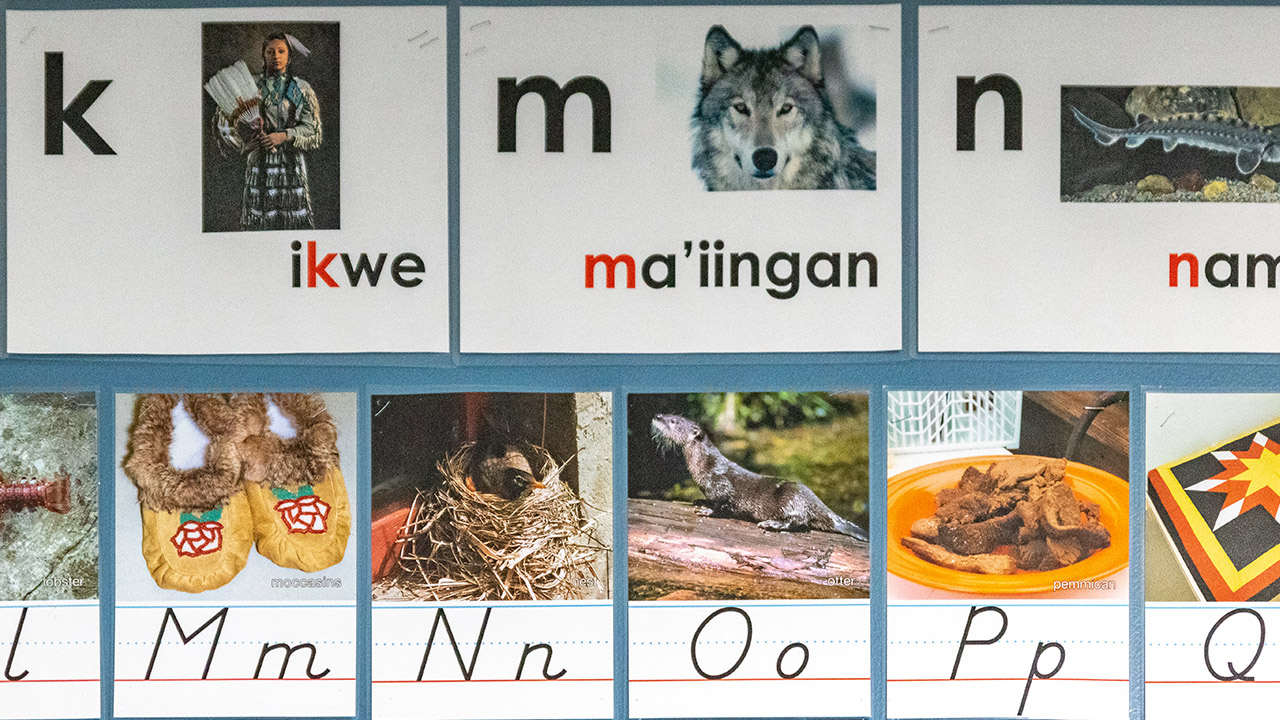
Fourteen University of Wisconsin-Platteville education students recently spent two weeks in Bayfield, Wisconsin, for a unique practicum experience, giving them the opportunity to learn more about culturally-responsive teaching practices and implementing Act 31 in the classroom.
Act 31 is a legislation that requires Wisconsin schools to educate students about the history, culture and tribal sovereignty of the 11 federally-recognized tribes in the state, at least twice in elementary school and once in high school. Approximately 80% of the students at Bayfield Elementary School are Native American, and the school works closely with the Red Cliff Tribe to provide instruction on Anishinaabe culture. Dr. Jen Collins, director of UW-Platteville’s School of Education, said this presented an opportunity for the students to see Act 31 modeled in a more authentic way.
“We want to move away from just ticking off the boxes for what students learn about Act 31 in the classroom and really show them what authentic implementation looks like,” said Collins.
The Bayfield Elementary School students have a weekly culture class where they learn about Anishinaabe culture, including language, traditional art, dance, food and more. Some of the UW-Platteville students had the opportunity to observe the culture class when the topic was pow wow traditions and etiquette. Before the end of their visit, the UW-Platteville students, along with the elementary students, attended a pow wow – an experience that Hannah Feltes, a senior from Kiel, Wisconsin, said was one of the most memorable.
“Some students had the opportunity in the drum circle to take turns drumming along,” said Feltes. “One of the students I had in my class brought his own regalia from home, which he was really proud of. It really made me think about how I will try to zero in on not only my future students’ cultures but also other cultures in Wisconsin.”
As the School of Education strengthens its focus on preparing students to teach in rural areas and respond to the unique needs of these communities, the experience in Bayfield helped bring these classroom concepts to life.
“We wanted to show our students that there are different types of ‘rural’ across the state, and each ‘type’ supports its community and school in unique ways,” said Collins.
A key tenet of the rurally-responsive teacher preparation program is the idea of place-based education, which uses a school’s own community – including its history, culture, environment and more – as the primary resource for learning. Students had the opportunity to see this idea demonstrated in multiple ways.
“One day the students were looking for aquatic macroinvertebrates in a stream that runs by the school,” said Feltes. “Another day they were tasting different squashes that they had grown in a garden at the school.”
Leanne Soppe, a senior from Benton, Wisconsin, got to see this concept in action in a unique environment. Soppe was one of two students who helped teach on Madeline Island. Each morning, they took a 20-minute ferry ride to the island, which has a population of under 300 year-round residents. She taught in a one-room school house where a total of 11 kids spanning grades one through six are enrolled.
“The school has a lead teacher and an assistant teacher, and they do everything from making breakfast to doing all the specials,” said Soppe. “It was like one big family. It’s also a very place-based classroom. There is a Wisconsin Historical Museum right across the street. The kids are reading the book, ‘The Birchbark House,’ which takes place on Madeline Island, so as they read parts they can walk across the street and browse the museum to learn more.”
Both Feltes and Soppe will be student-teaching in the small communities of Elkhart Lake and Argyle, Wisconsin, respectively, next semester and said they can take pieces of this experience with them.
“I would definitely love to stay in a small community after graduation, and after being up there on Madeline Island, in that school house, it has really made me think more about opportunities for being in a place-based school like that,” said Soppe.
A new group of students are already scheduled to visit Bayfield next semester, and Collins said she hopes this is the start of a long, mutually-beneficial partnership with the Bayfield School District. Officials from the district agreed.
“The partnership with UW-Platteville was an opportunity for growth and learning that we couldn't pass up,” said Beth Paap, district administrator for Bayfield schools. “Seeing the interaction and willingness to try, with both the UW-Platteville students and our own teachers and students, affirmed the great value and strength of working together.”
“We love this collaborative practicum effort and hope it is mutually beneficial,” said Rick Erickson, a teacher in the Bayfield School District. “It's easy to get lost in the demands and intensity of day-to-day teaching, yet working side-by-side with enthusiastic, hard-working pre-service students provided an energizing boost. It also provides an opportunity for the Bayfield staff to give to the profession and help develop Wisconsin's future teachers. We hope this partnership continues and serves as a model for other teacher preparation programs.”
Collins added that the support of alumni and friends made this experience possible.
"Alumni and their generous donations to foundation accounts really helps support innovative programs like this and makes an impact on developing culturally-responsive teachers,” said Collins, who added that the Student Research and Engagement Fund also helped make this possible. “We understand these experiences are expensive and we couldn't do it without this funding."